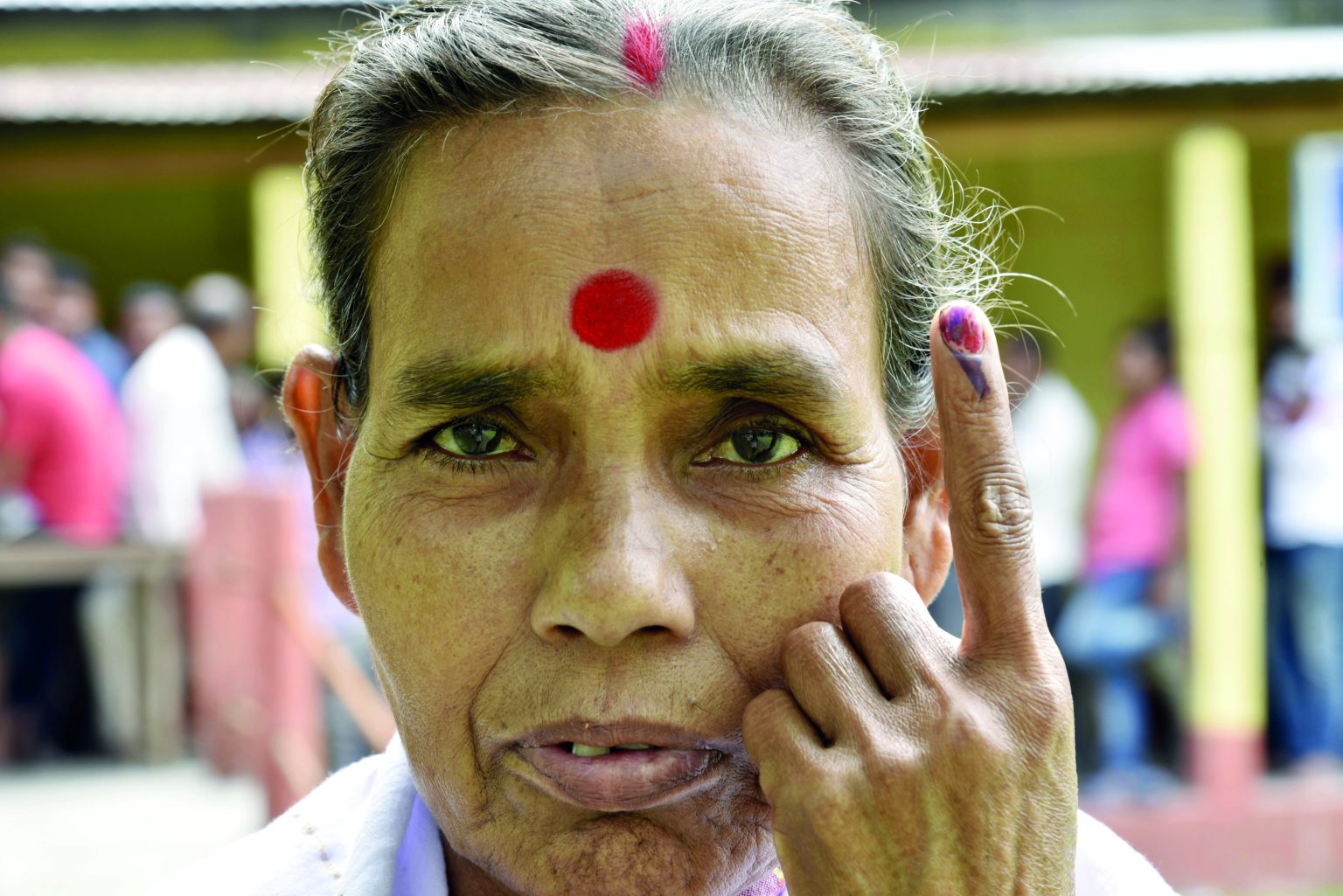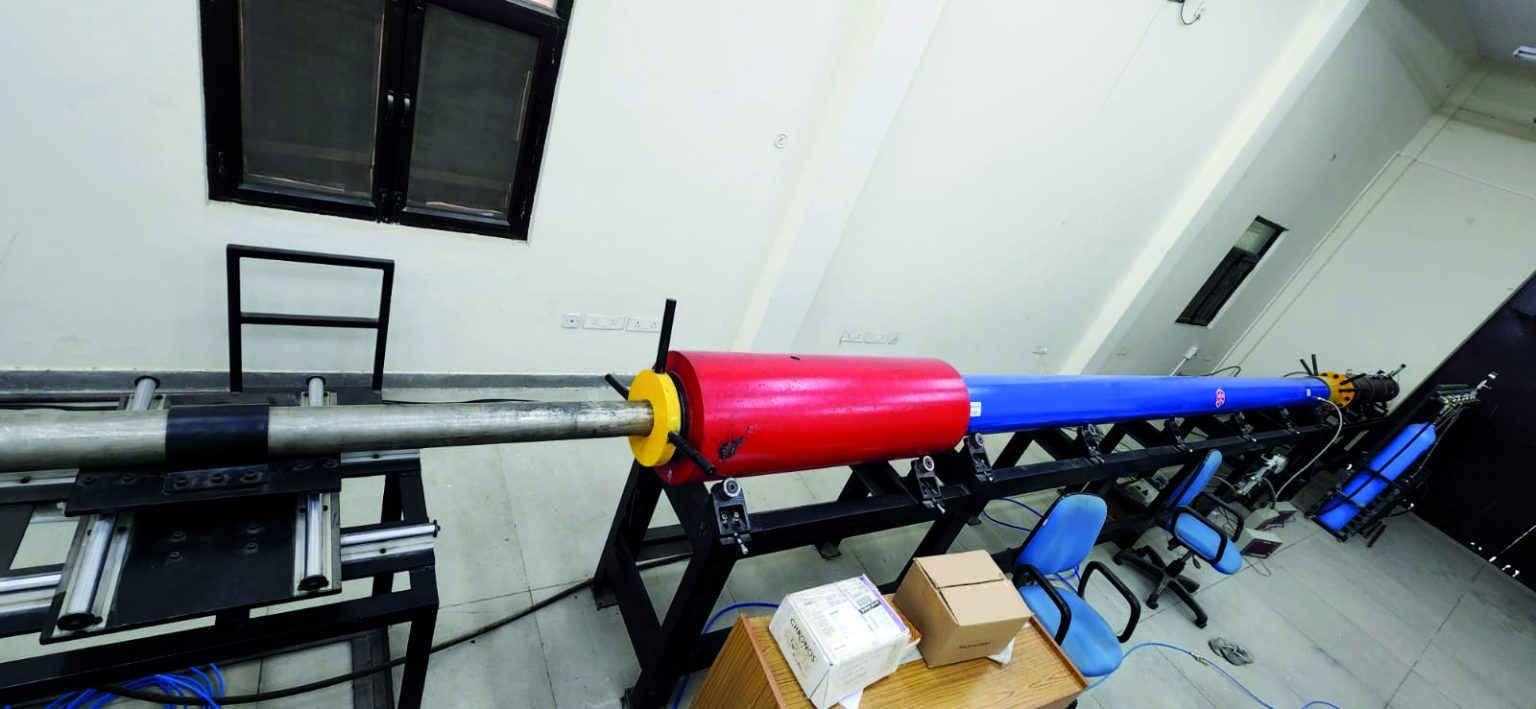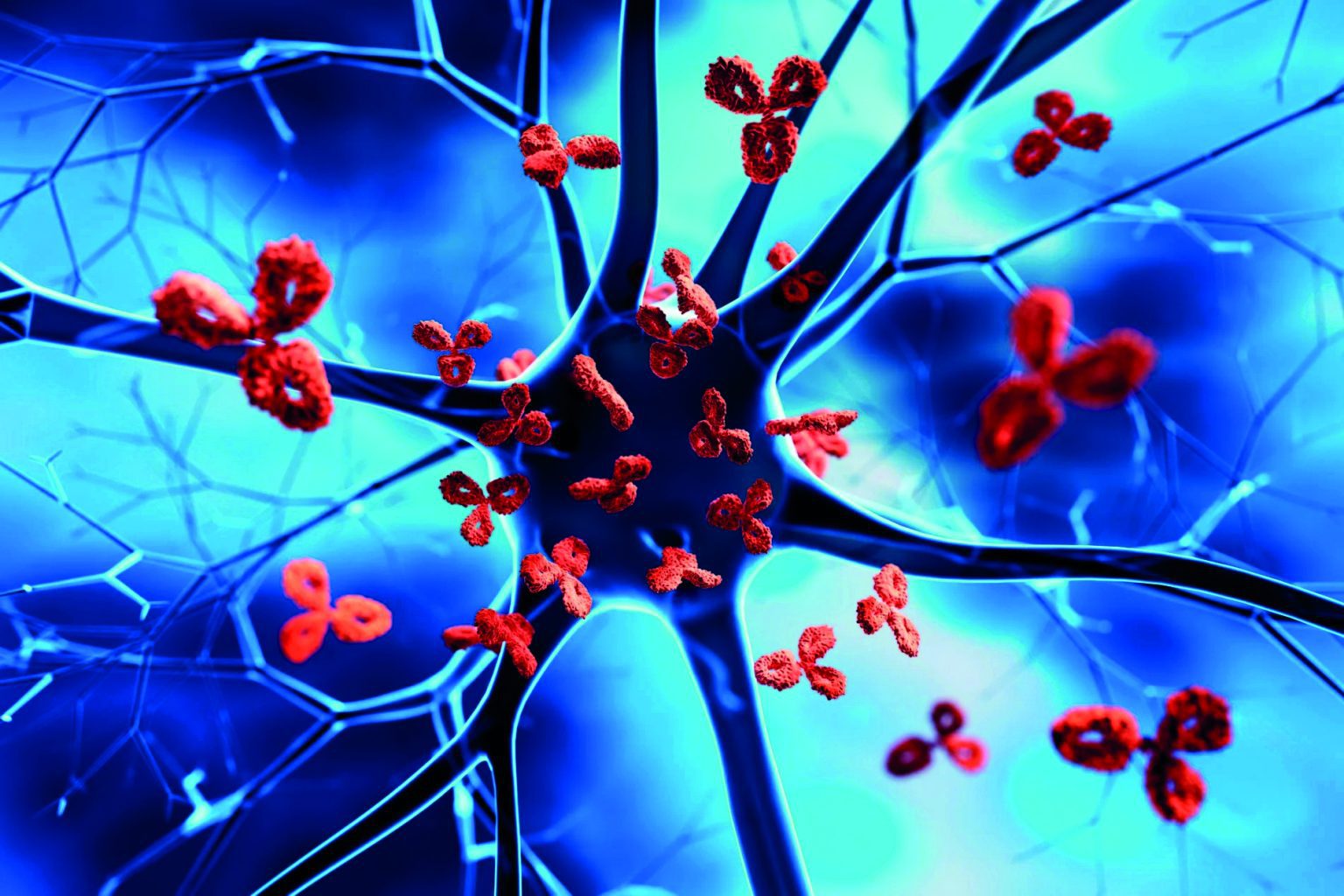Author: Science India Bureau
Image Courtesy: Shutterstock Amidst the ongoing great Indian Lok Sabha election jamboree of ballots and booths with a voter base of nearly 97 crore, lies a humble yet indispensable element — the indelible ink. More than just a mark on the finger, it symbolizes the essence of India’s commitment to fair and free elections. Beyond its functional role, indelible ink carries immense symbolic weight. It signifies the solemn act of participating in the democratic process, a fundamental right and duty of every citizen. The ink-marked finger becomes a badge of honour, proudly displayed by voters as a testament to their…
Image Courtesy: Wikimedia Commons A group of researchers in India for the first time ever has documented how Asian elephants bury dead calves. Five calves were found buried on their backs in drainage ditches in tea gardens in northern Bengal, according to a study conducted by the researchers at the Indian Institute of Science Education and Research (IISER). According to a report published in the CNN.com, the study was published in the internationally acclaimed Journal of Threatened Taxa on February 26. In the report, CNN has quoted a senior research fellow Akashdeep Roy, at the Indian Institute of Science Education…
Dr Neeraj Kayal is a much awarded computer scientist and mathematician, who has many feathers in his cap, the two most recent ones being the Shanti Swarup Bhatnagar Prize for Mathematical Sciences in 2022 and the Infosys Prize in Mathematical Sciences in 2021 for his contributions to Computational Complexity. He graduated with a BTech from the Computer Science Department of the Indian Institute of Technology, Kanpur (IITK), in 2002, and the same year, along with Manindra Agrawal and Nitin Saxena introduced the AKS primality test, which garnered international attention and was featured in a report in The New York Times as well. He earned his PhD…
Images Courtesy: Department of Science and Technology Rheumatic heart disease, which leads to the damage of heart valves needing prosthetic replacement, is a challenge in India. In the 1980s, based on the estimate of the Indian Council for Medical Research (ICMR), 6 out of every 1000 children had rheumatic fever and the young population at risk for valvular disease was estimated at 12 lakhs. The valves, which are the solution to the disease, needed to be imported at a very high cost and were not affordable to all. Sree Chitra Tirunal Institute for Medical Sciences and Technology (SCTIMST), an autonomous…
India’s First Hypervelocity Test Facility
Science India Bureau The Indian Institute of Technology, Kanpur (IITK) has successfully developed and tested India’s first Hypervelocity Expansion Tunnel Test Facility, marking a significant milestone in the nation’s progress towards Atmanirbharta (self-reliance). With this significant accomplishment, India joins a select group of nations possessing this cutting-edge hypersonic testing capacity. The S2 facility can simulate hypersonic conditions for vehicle atmospheric entry, asteroid entry, scramjet missions, and ballistic missiles. It can generate flight speeds ranging from 3 to 10 km/s. For ongoing ISRO and DRDO projects like Gaganyaan, RLV (reusable launch vehicle), and hypersonic cruise missiles, this makes it a useful…
Novel Insights into Autoimmune Illnesses
Dr Dipyaman Ganguly is an Indian physician-scientist who specialises in immunology and cell biology. He is currently a Principal Scientist and Swarnajayanti Fellow at the CSIR-Indian Institute of Chemical Biology (IICB), Kolkata. He is the director of the Dendritic Cell Laboratory at the IICB, also referred to as the Ganguly Lab, where he accommodates a number of researchers who study the pathophysiology of inflammatory illnesses and the control of innate immunity. For his contributions to the medical sciences, he was awarded the Shanti Swarup Bhatnagar Prize for Science and Technology in 2022 by the Council of Scientific and Industrial Research,…
Coherent Interactions of Neutrinos
Prof Basudeb Dasgupta is a physicist who works on neutrinos and dark matter. In 2022, he received India’s top science honour in Science and Technology—the prestigious Shanti Swarup Bhatnagar Prize in the Physical Sciences. He is also a recipient of the ICTP Prize for 2019, awarded by the International Centre for Theoretical Physics. Prof Dasgupta acquired his PhD in 2009 from the Tata Institute of Fundamental Research. Following that, he worked as a postdoctoral fellow at the International Centre for Theoretical Physics, the Max Planck Institute for Physics, and Ohio State University. In September 2015, he started working as an Associate Professor at the Tata Institute of Fundamental…
January 22, 2024, has become an epochal date in the life of this ancient country. The long-debated Ram Mandir at Ayodhya became a reality on this day as the Prime Minister Narendra Modi inaugurated the temple with the consecration of the idol at the birth place of Lord Ram. This was made possible after a five-judge bench of the Supreme Court gave a verdict on November 9, 2019, ruling in favour of the construction of a temple at the disputed site. The verdict rode on an exhaustive, scientific survey carried out by the Archaeological Survey of India (ASI) that established…
Dr Akkattu T Biju, associate professor of organic chemistry at IISc Bengaluru, is one of the two winners of the Shanti Swarup Bhatnagar Prize for Chemical Sciences for 2023. Like the other winner, Debabrata Maiti of IIT Bombay, Dr Biju too develops new strategies for pharmaceutically valuable molecules. Dr Biju was awarded the prestigious prize for his work on transition-metal-free carbon-carbon and carbon-heteroatom bond formation reactions using aryne chemistry and carbene-based organocatalysis. His research group has used aryne chemistry to synthesise biologically important 1,2-disubstituted arenes, as well as nucleophilic heterocyclic carbene-based catalytic techniques to build various heterocyclic compounds as a…
A new non-invasive, low-cost sensor with long-term stability and a low detection limit is based on reduced graphene oxide composite with metal oxide nanoparticles, and it can detect formalin adulteration in fish at room temperature. The act of adding illicit or dangerous materials to food in order to extend its shelf life or give it a more enticing appearance is known as food adulteration. A colourless, strong gas called formaldehyde finds application in numerous industrial processes. It is also used as a food preservative in certain dishes, most notably fish in underdeveloped nations. However, because formaldehyde is a known carcinogen,…















